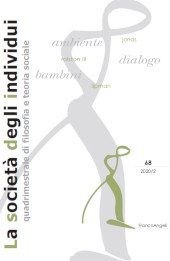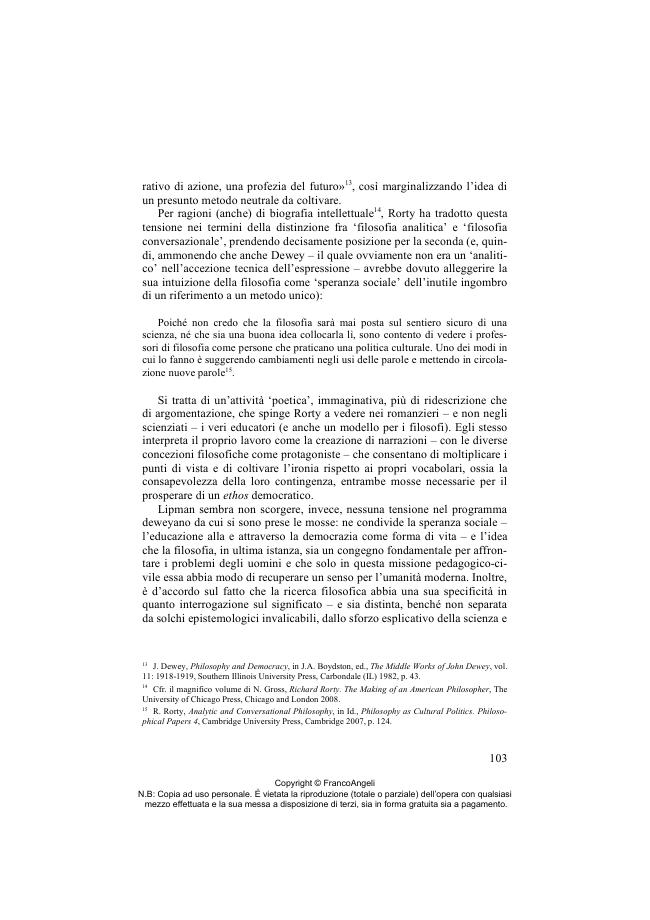Fini della filosofia : Philosophy for Children e/o neopragmatismo
99-107 p.
The paper explores the significance of the invention of the Philosophy for Children approach within the framework of the debate about Dewey's idea of a 'reconstruction of philosophy' by establishing a comparison between the positions of Matthew Lipman and Richard Rorty. In this perspective, on the one hand, the present author emphasizes that, differently from Rorty, Lipman insists on the value of philosophy as the pivot of education, instead of appealing to a 'poeticized culture'; and, on the other, it is argued that, while agreeing with Dewey on the need for a recovery of philosophy, Lipman innovates Dewey's legacy by conceiving of the possibility of doing philosophy also in the primary levels of the school. Against this backdrop the two pillars of Philosophy for Children as a pedagogical practice are examined: the creation of a curriculum composed of philosophical novels and manuals and the community of philosophical inquiry as an educational setting. [Publisher's text].
Fa parte di
Società degli individui : 68, 2, 2020-
Articoli dello stesso fascicolo (disponibili singolarmente)
-
Informazioni
Codice DOI: 10.3280/LAS2020-068009
ISSN: 1972-5752
MATERIE
PAROLE CHIAVE
- Philosophy for Children, education, Matthew Lipman, Richard Rorty



